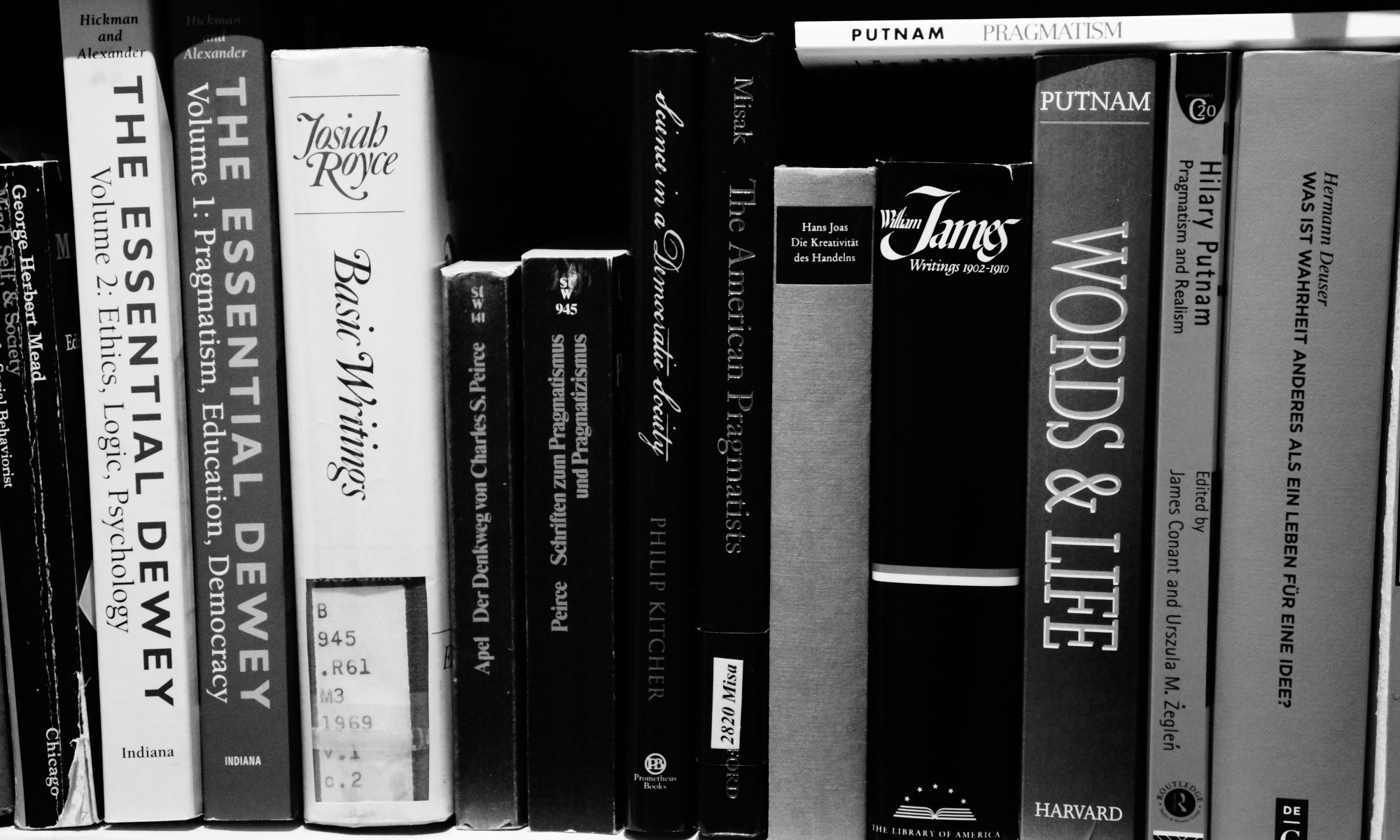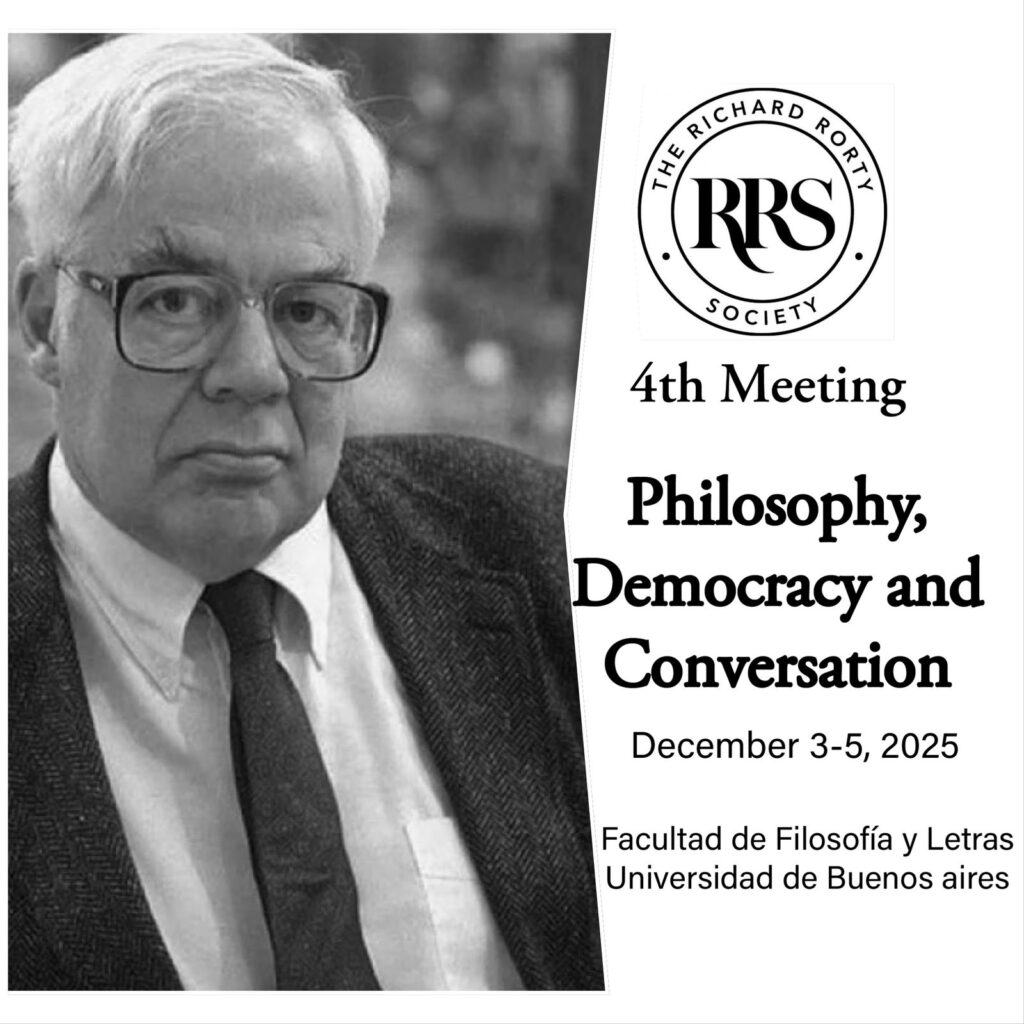Menschen neigen dazu, sich in ein mehr oder minder artikuliertes Verhältnis zum Ganzen ihrer erfahrbaren Wirklichkeit zu setzen und entwickeln dabei Religionen und Weltanschauungen unterschiedlichster Art, können aber auch zu der Idee einer integrativen Gesamtperspektive ein höchst kritisches oder ablehnendes Verhältnis entwickeln. In beiden Fällen artikulieren sie Erfahrungen vor dem Hintergrund einer qualitativen Weltbeziehung.
Unter den klassischen Pragmatisten haben sich besonders William James und John Dewey, in einer sehr speziellen Perspektive auch Charles Peirce, mit diesem hartnäckigen, vielleicht nicht universellen, aber doch weit verbreiteten menschlichen Bedürfnis beschäftigt. Peirce entwickelt eine spekulative Kosmologie und Metaphysik, die an seine Kategorienlehre anknüpft. James versucht im „Will to Believe“, eine komplexe Antwort auf die Frage zu finden, was wir wann und unter welchen Umständen zu glauben berechtigt sind, Dewey geht noch einen riskanten Schritt weiter, indem er einen „Common Faith“ der Menschheit aus der disparaten Fülle religiöser Überzeugungen extrahieren will.
In jedem Fall, so die Idee hinter der Tagung, stellt der klassische Pragmatismus reichhaltige Ressourcen zur reflexiven Auseinandersetzung mit dem skizzierten Thema bereit, die die etablierten Diskurse bereichern und verändern können, insbesondere dadurch, dass von einem differenzierten Erfahrungsbegriff und den Bedingungen und Grenzen seiner Ausweitung auf die Wirklichkeit im Ganzen ausgegangen wird.
Als Keynote-Speaker konnten wir Prof.’in Dr. Annette Langner-Pitschmann (Goethe-Universität Frankfurt a.M., Professur für Theologie in globalisierter Gegenwart) und Prof. Dr. Sami Pihlström (Universität Helsinki, Professor für Philosophie der Religion) gewinnen.
Organisation: Dr. Tina Massing, Prof. Dr. Matthias Jung
Kontakt und Anmeldung: Dr. Tina Massing: tagung@gerprag.net
Call for Papers
*English version below*
Wir möchten dazu einladen, Vortragsvorschläge zum gesamten Spektrum des Tagungsthemas einzureichen. Besondere Aufmerksamkeit wird Einreichungen zukommen, die sich mit folgenden Fragen auseinandersetzen:
- Weltanschauungen („Comprehensive Worldviews“) im Allgemeinen,
- Weltanschauungen und die Wissenschaften (sowohl Geistes- als auch Naturwissenschaften),
- Pluralismus und Kontingenz ernst genommen – sind Weltanschauungen obsolet?
- Die Spannung zwischen normativem Egalitarismus und der Partikularität von Weltanschauungen,
- Überzeugungen und Wahrheitsansprüche in pragmatistischer Perspektive,
- „Ethics of belief“ (die Clifford-James-Debatte und ihre Relevanz für heute),
- Die Reichweite und die Bedeutung der Idee eines „übergreifenden Konsens“.
Jedes angenommene Paper erhält einen 20-minütigen Zeitslot. Um garantieren zu können, dass genügend Zeit für die anschließende Diskussion bleibt, ist dieser Zeitslot fest und kann nicht überschritten werden.
Außerdem wird es eine 90-minütige Postersession geben, die für alle pragmatistischen Themen geöffnet ist.
Bitte reichen Sie Ihre Paper sowie Poster-Vorschläge (Deutsch oder Englisch, maximal 300 Worte) bei Tina Massing ein: tagung@gerprag.net
Die Konferenzsprache ist Deutsch, englische Vorträge sind aber möglich und willkommen.
Einreichungen werden bis zum 05. März 2023 akzeptiert und das Ergebnis des Call for Papers wird spätestens Ende März bekannt gegeben.
We invite presentation proposals covering the entire range of the topic. Special attention will be given to papers dealing with the following questions:
- Comprehensive Worldviews in general,
- Worldviews and the sciences (both the humanities and the “hard” sciences),
- Pluralism and contingency taken seriously – are comprehensive worldviews obsolete?,
- The tension between normative egalitarianism and the particularity of worldviews,
- Beliefs and truth-claims in a pragmatist perspective,
- The ethics of belief (The Clifford-James debate and its importance for today),
- The scope and importance of the idea of an “overlapping consensus”.
Each accepted paper will be given a 20 minutes-slot. In order to ensure sufficient time for discussion, this time-slot is fixed and cannot be exceeded.
We will also have a 90-minute postersession, open for all pragmatist topics.
Please submit both your paper and your poster proposals (German or English, max. 300 words) to Tina Massing: tagung@gerprag.net
Submission deadline is March 5th, 2023 and the result of the call will be announced by the end of March at the latest.

